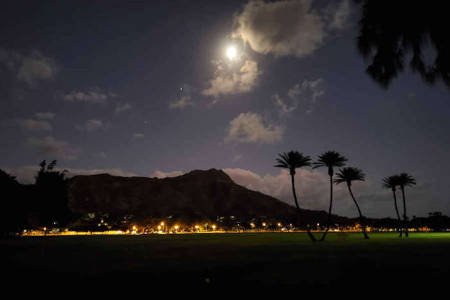
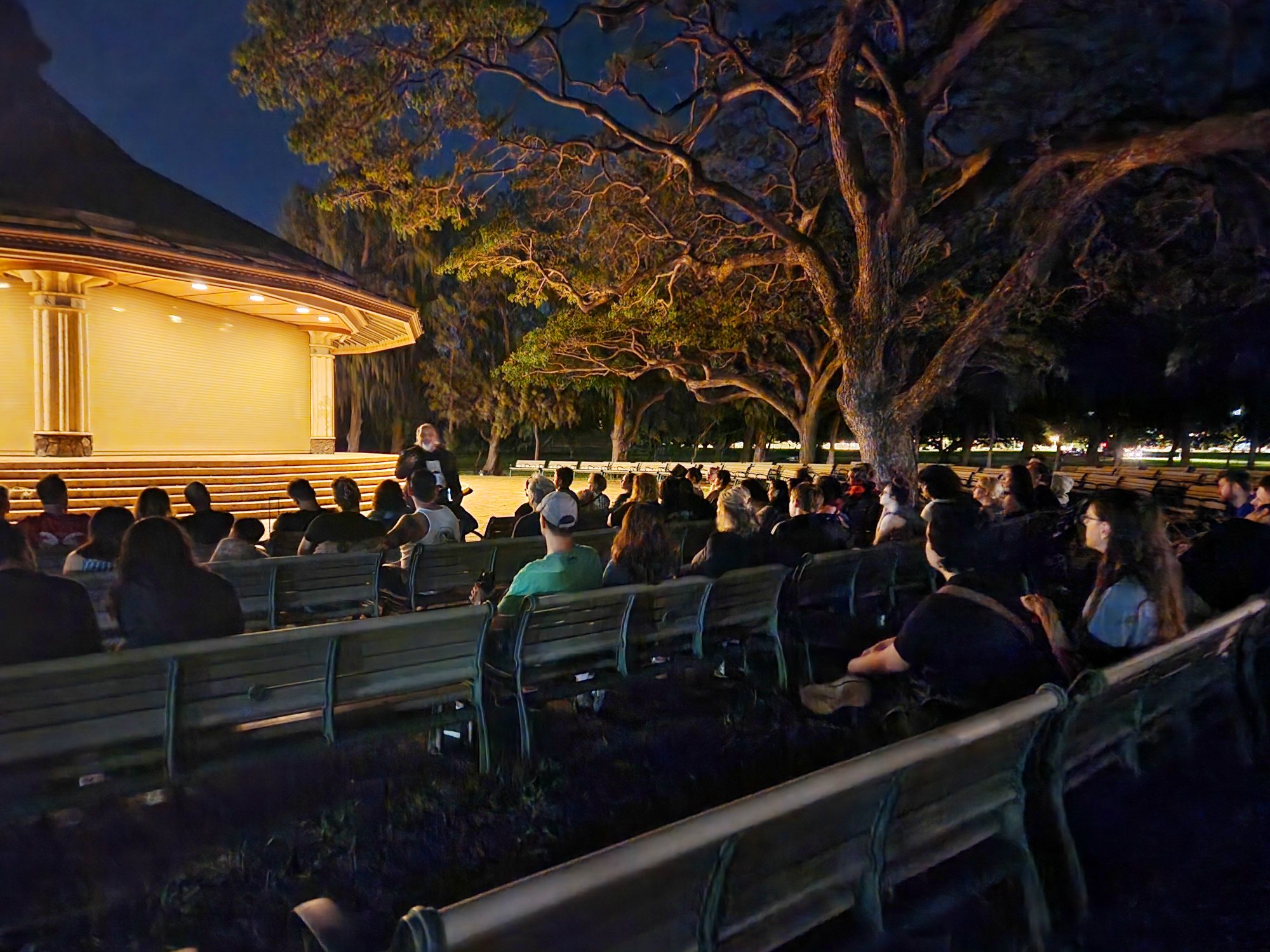
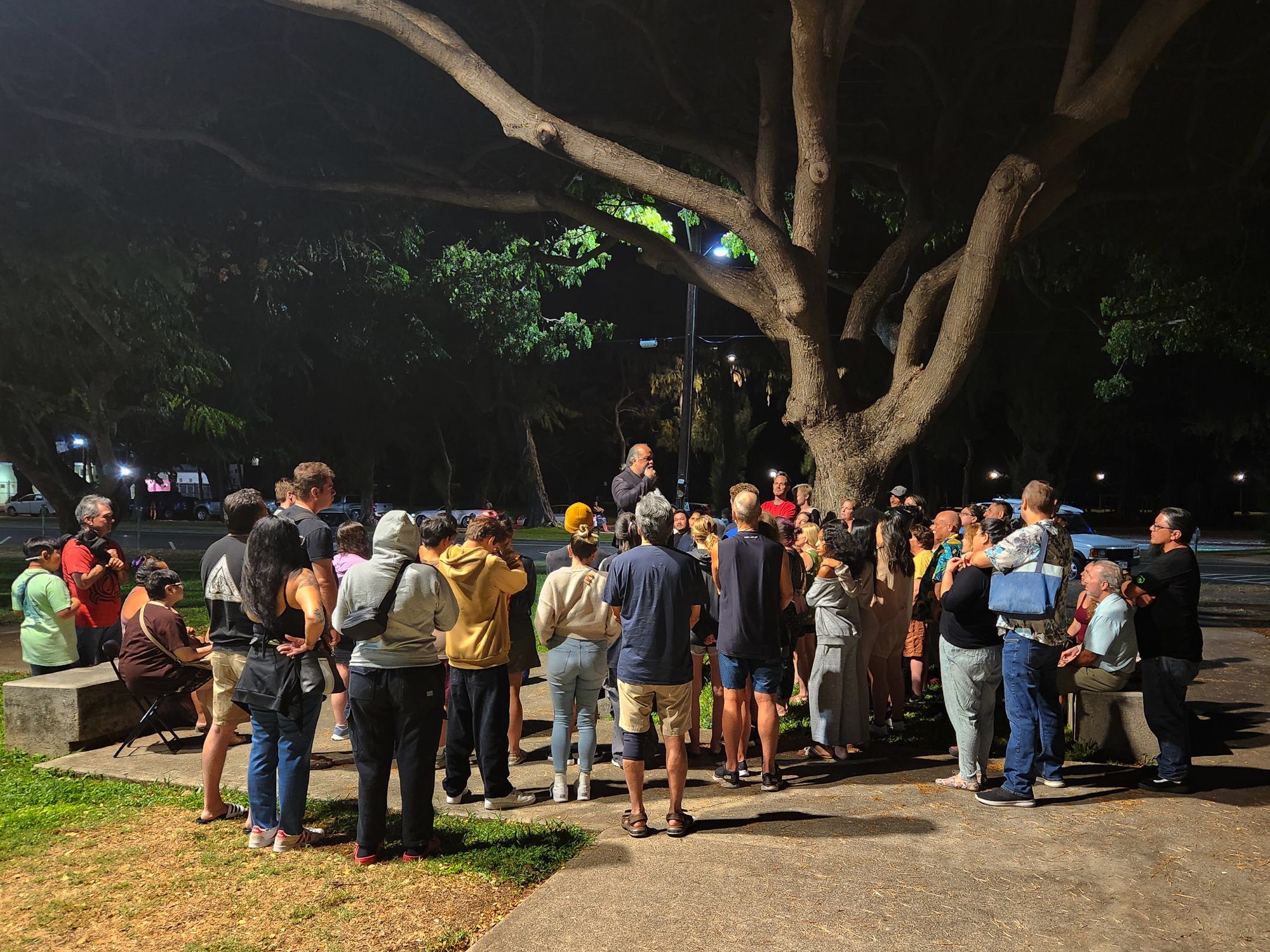
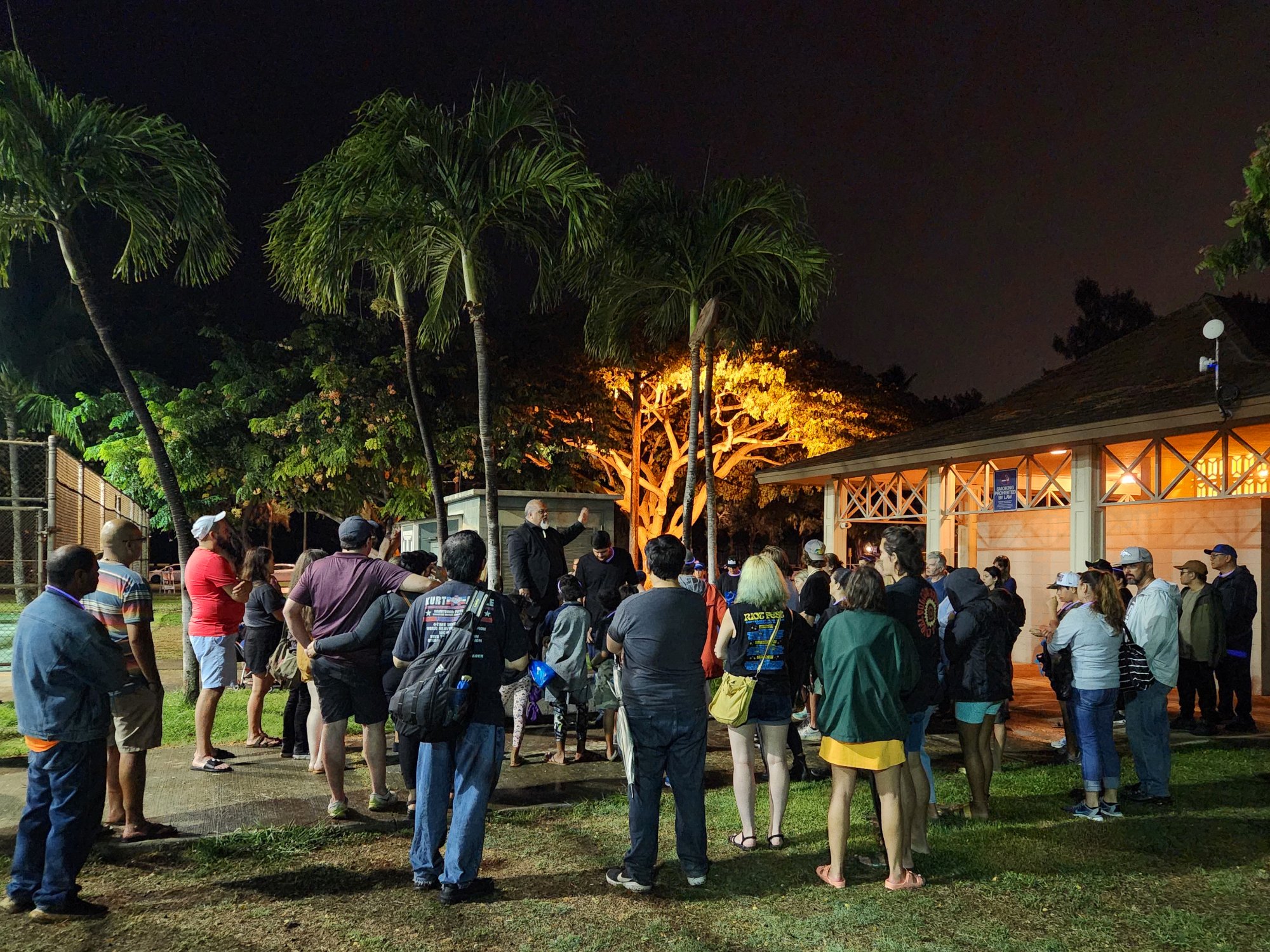
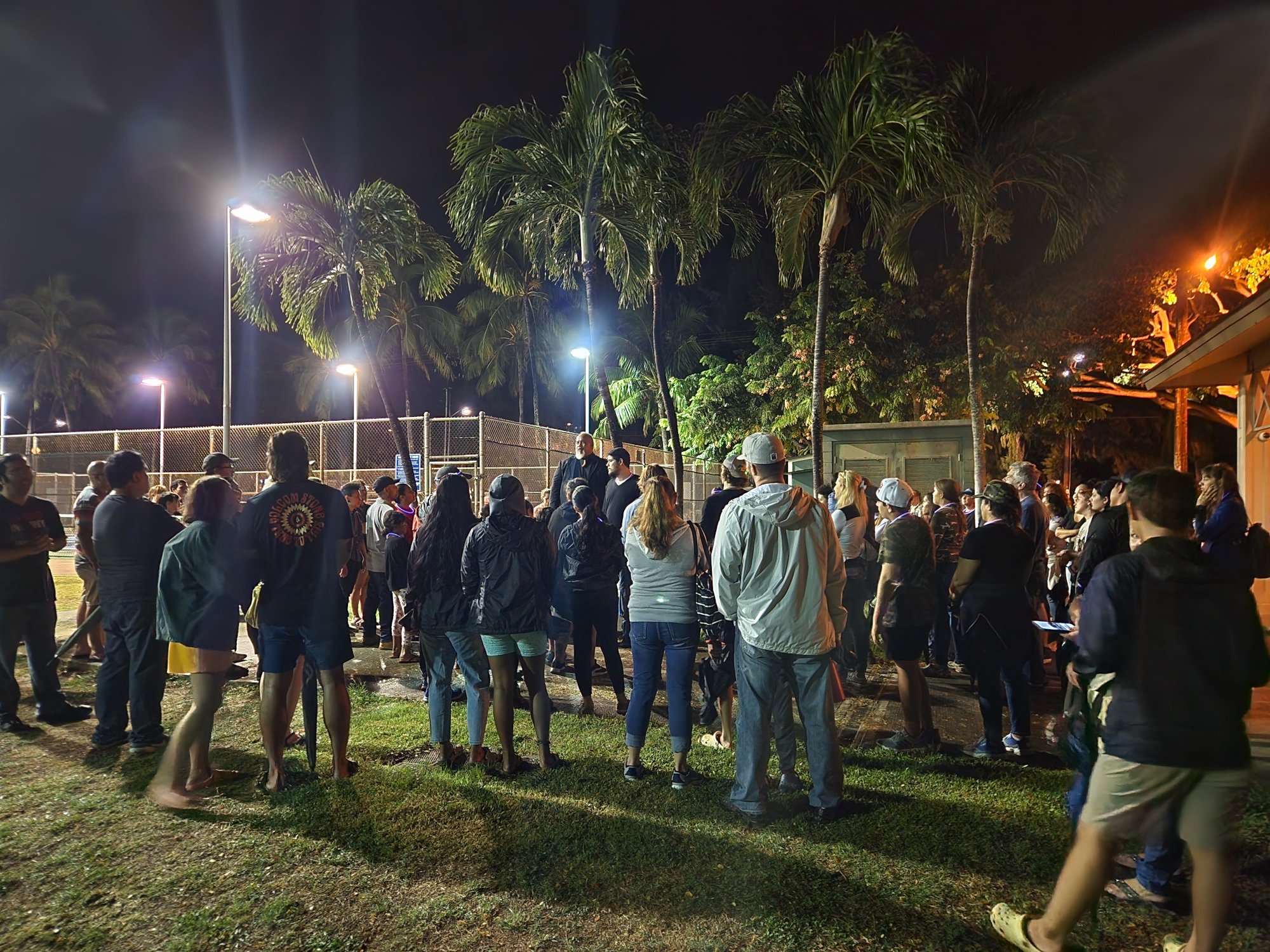
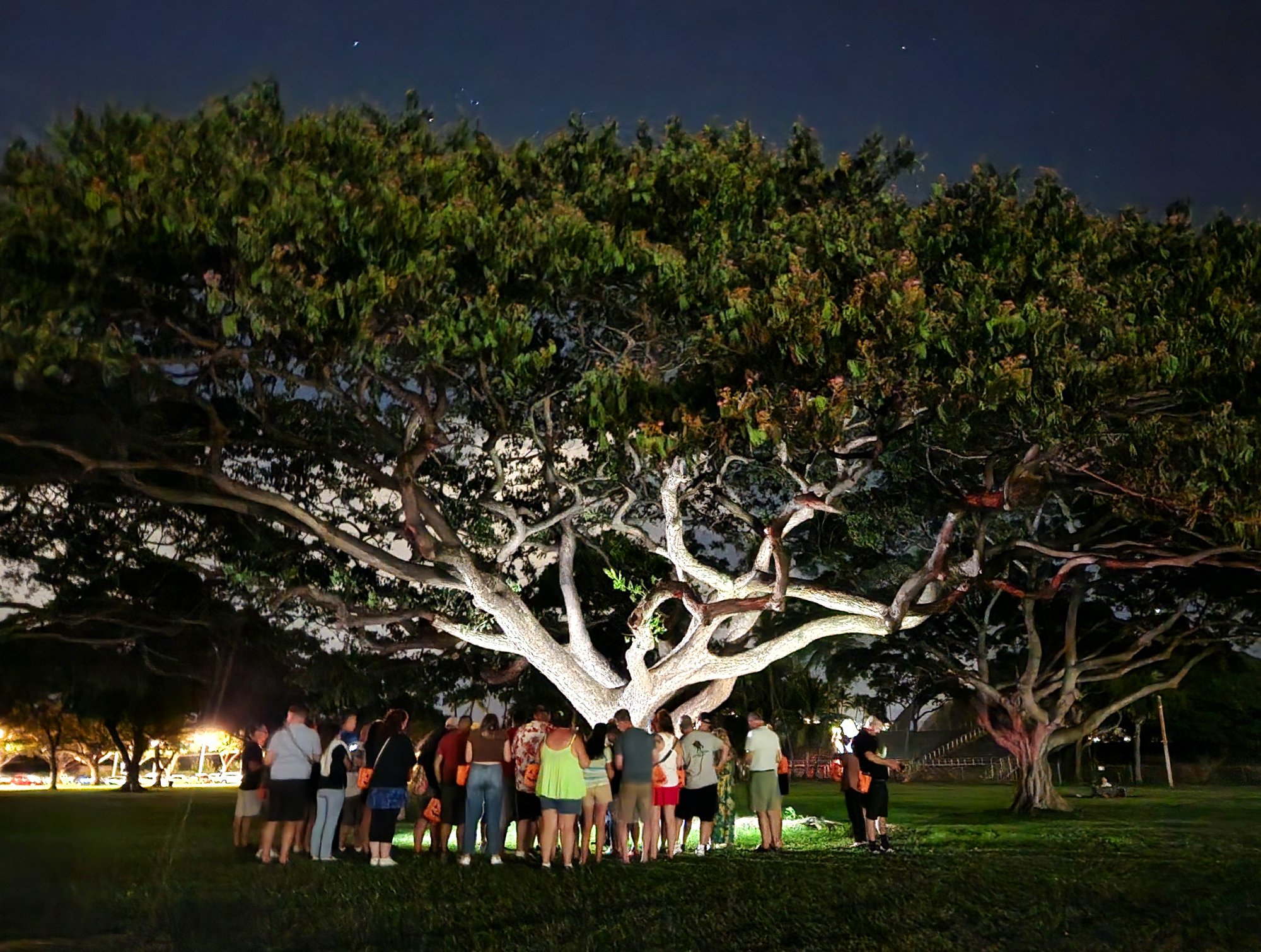
Waikiki Night Marchers Ghost Tour.
There’s so much more to Waikiki than just high-end shopping and the occasional Polynesian luau. Once being the seat of power of the Island of Oahu, the sands of Waikiki contained much more than seashells and sand crabs.
The oral traditions of the much-feared night marchers have survived countless years by being passed down from mouth to ear and then by the learned art of writing and documentation. Their tales have survived the influx of missionaries and different cultures. Their stories have spread through hushed whispers during late-night storytelling around the dinner table. Their procession has been witnessed by Hawaiians and non-Hawaiians from different walks of life. The night marchers hold us in rapt attention as their deeds are recounted in private and public settings. However, the question always becomes, “Who are the Night Marchers?”
On our Waikiki ghost tour, come learn about a place that was famous for ancient burials, heiau, battlefields, the homes of ali‘i, and several paths of the feared Night Marchers. On this hour and a half walking tour, hear the stories of those who have witnessed the march and have survived to tell the tale.
Scroll down to book your Waikiki Night Marchers Experience.
NOTE: You will not receive individual tickets. Your credit card receipt is your proof of purchase. Please check in with your name at the start of the tour.
Waikiki Night Marchers Ghost Tour
7PM Sunday or Wednesday Nights
We meet at the Waikiki Bandstand at Kapi‘olani Park
Google Maps directions: 2686-2882 Kalākaua Ave, Honolulu, HI 96815
Tour length, 90 minutes
Tour begins promptly at 7pm
$40 per person
View dates and book your tour at the links below
IF YOU ARE CATCHING AN UBER or LYFT, PLEASE INPUT THIS CODE AS YOUR DESTINATION: 759H+FJ Honolulu, Hawaii
Book your Waikiki Night Marchers Experience through the links below.
AUGUST

SEPTEMBER

OCTOBER
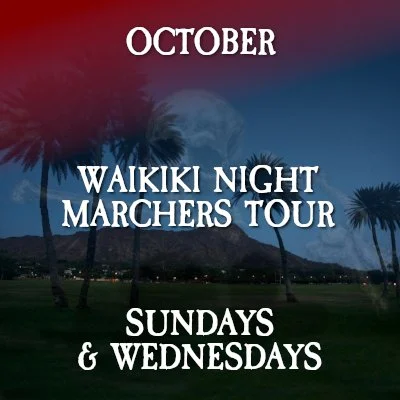
Lopaka, Night Marcher Consultant
Lopaka’s extensive research on the subject of Night Marchers led to him being the Night Marcher Consultant on Netflix’s family adventure movie, “Finding Ohana.” Click the link below to book your tour with Hawaii’s Night Marcher Expert.
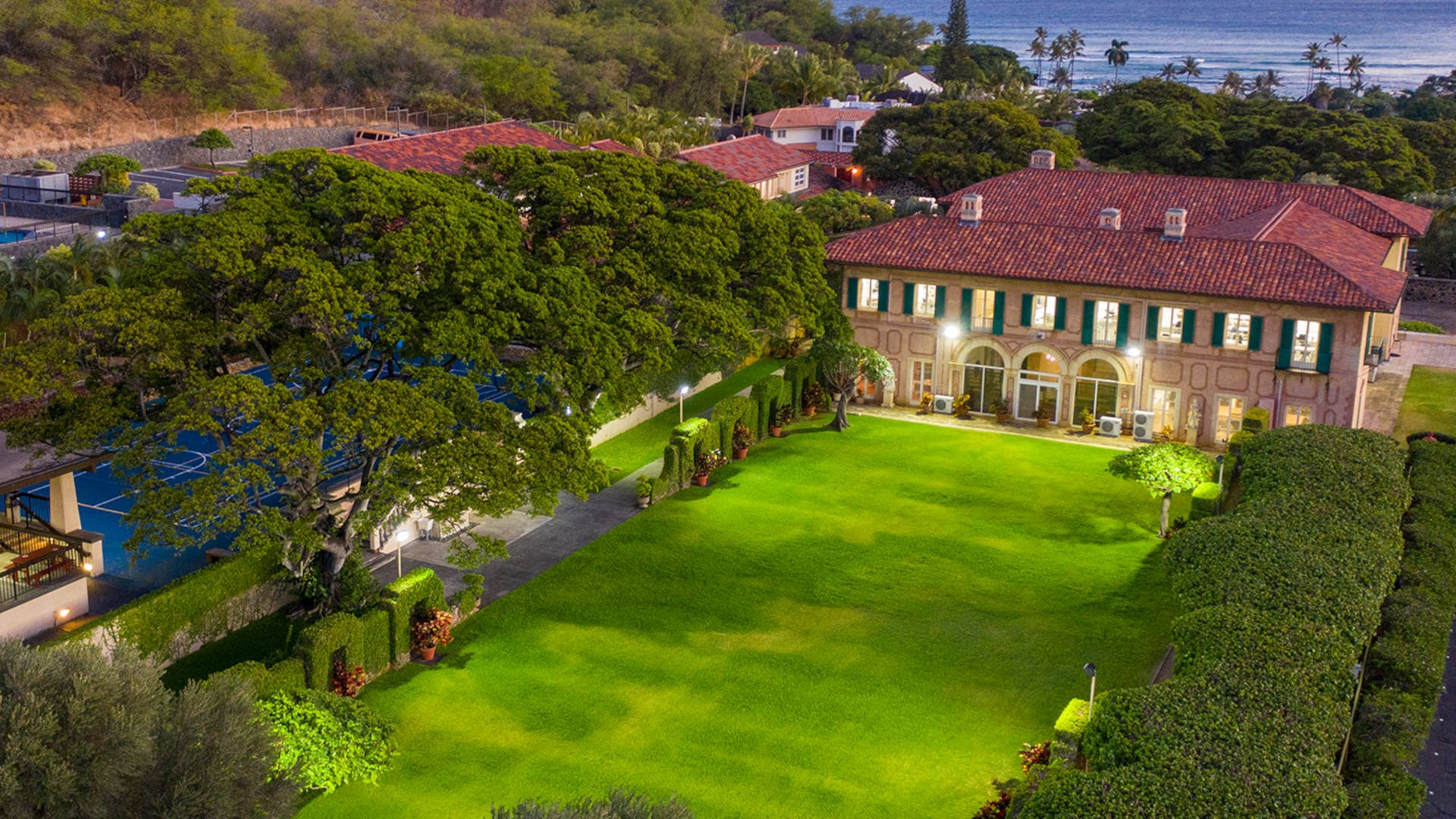
Night Marchers at La Pietra School (Papa‘ena‘ena Heiau)
In 1783, after his victory over Oahu, the Maui Ali‘i, Kahekili constructed a great heiau at the foot of Leahi, or Diamond Head on the edge of Waikiki. This heiau became known as Papa‘ena‘ena.
Twelve years later, in 1795, after Kamehameha I’s victory of Keleleake‘anae, the battle of Nu‘uanu, he offered a sacrifice on the altar at Papa‘ena‘ena. His own cousin, Kalanikupule, the son of Kahekili.
In 1804, because of dysentery, Kamehameha’s forces were not able to make their journey to the island of Kaua‘i. They returned to Oahu, and Kamehameha offered to the gods 400 pigs, several thousand coconuts & bananas, and 3 kapu violators.
A woman staying in Waikiki in the 1930s relays an experience to Antoinette Withington, the author of Hawaiian Tapestry. She says that on the first night she
saw glowing lights just on the edge of the water. On the second night, she saw the same thing, except now, the glowing lights seemed to have shadowy forms as if they were people holding up torches, walking along the beach, heading toward Diamond Head.
The author, Ms. Withington, consults a known Hawaiian scholar living in Waikiki who said that it was interesting that a “haole” woman would have seen something like this. Those must be the night marchers, the procession of ghostly Hawaiian warriors and ali‘i heading towards the celebrated heiau known as Papa‘ena‘ena, perhaps for a ceremony.
In 2019, Lopaka Kapanui was leading a ghost tour in Waikiki and was talking about bones and burials. Lopaka and the dozens of people in his group happened to notice red glowing lights going up the slopes of Diamond Head, over the ridge, and down into the crater.
Police officers have said that on the nights when there is no moon, you can see torch lights appearing from the Kapiolani Park Bandstand, going through the park and towards the La Pietra School for girls. These lights are most likely the manifestations of the night marchers heading toward the school.
For La Pietra School for Girls sits atop the remnants of the sacrificial heiau, Papa‘ena‘ena.



